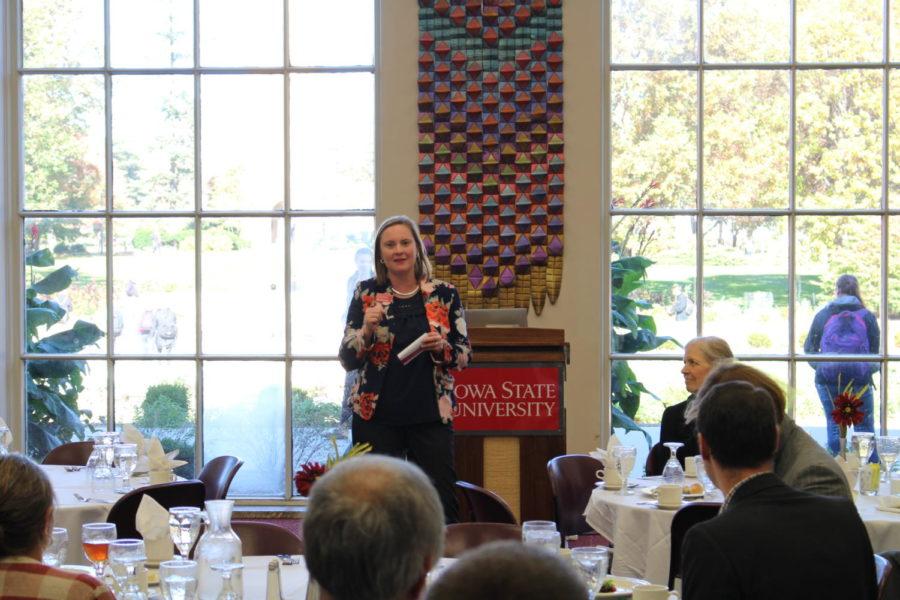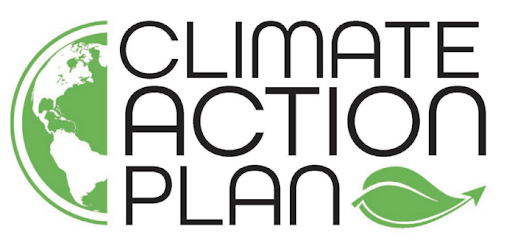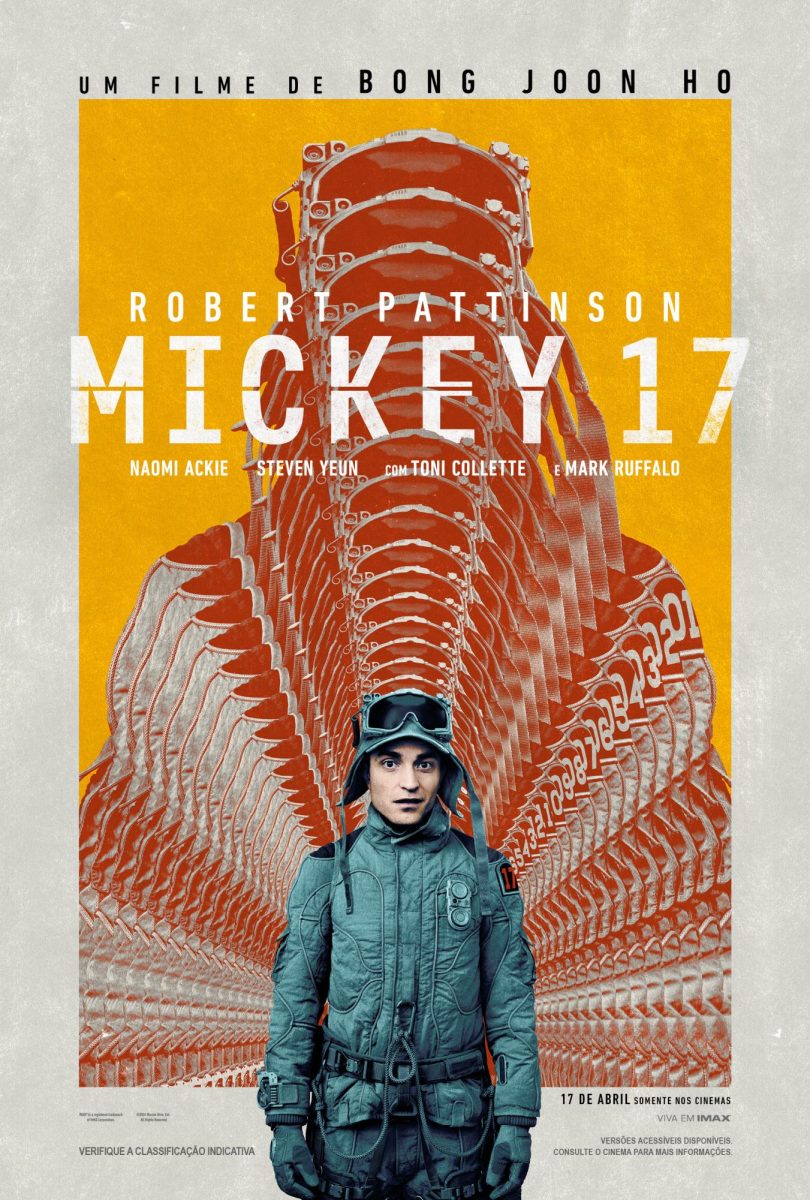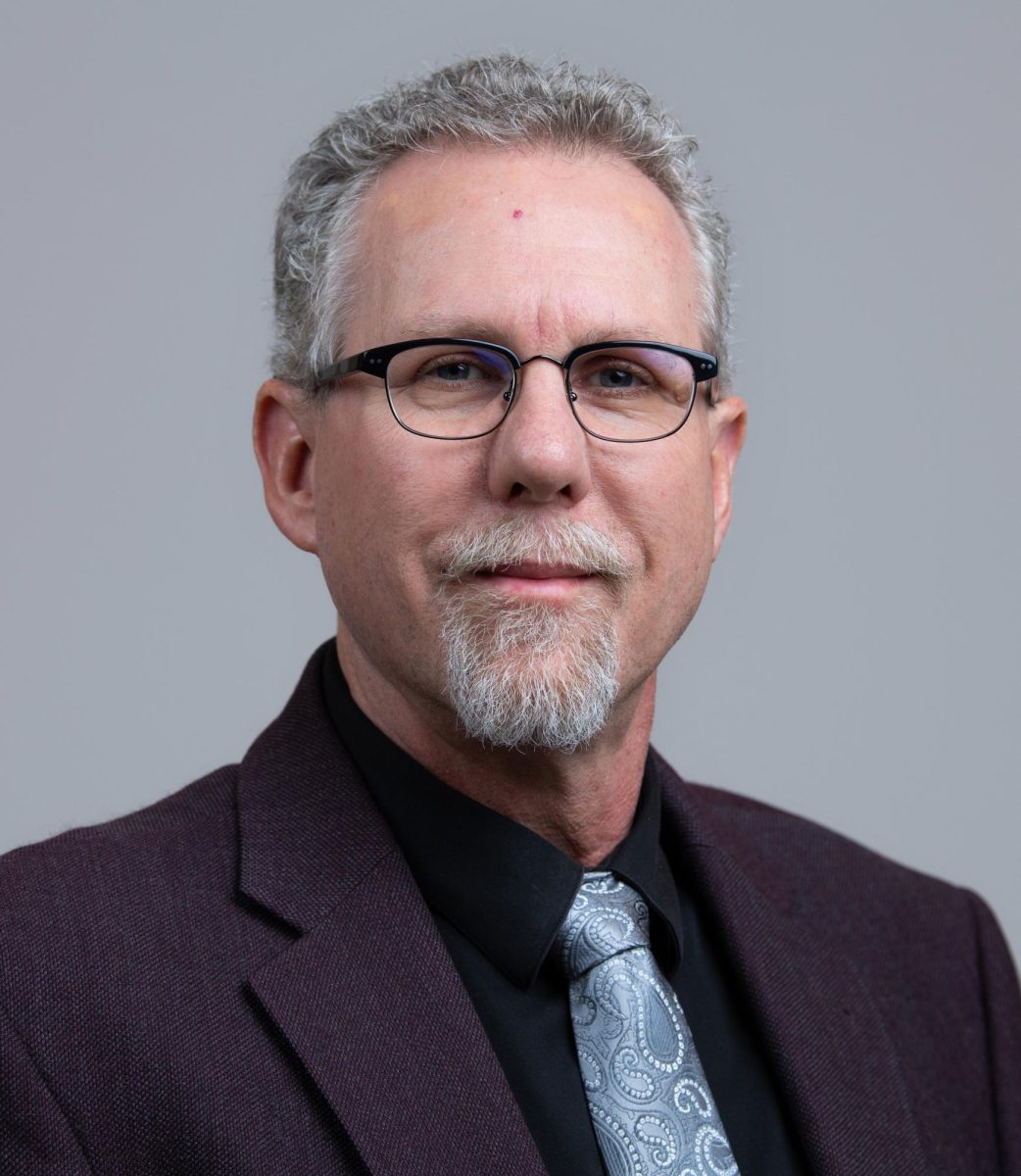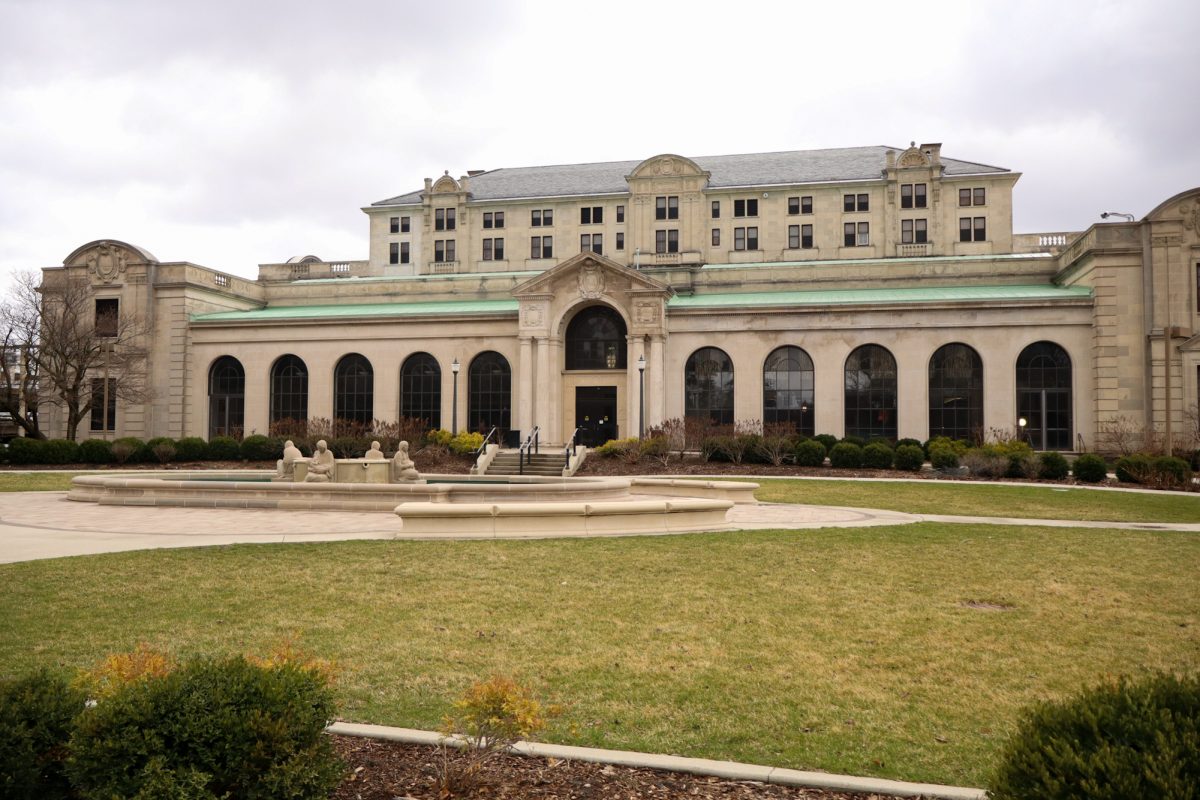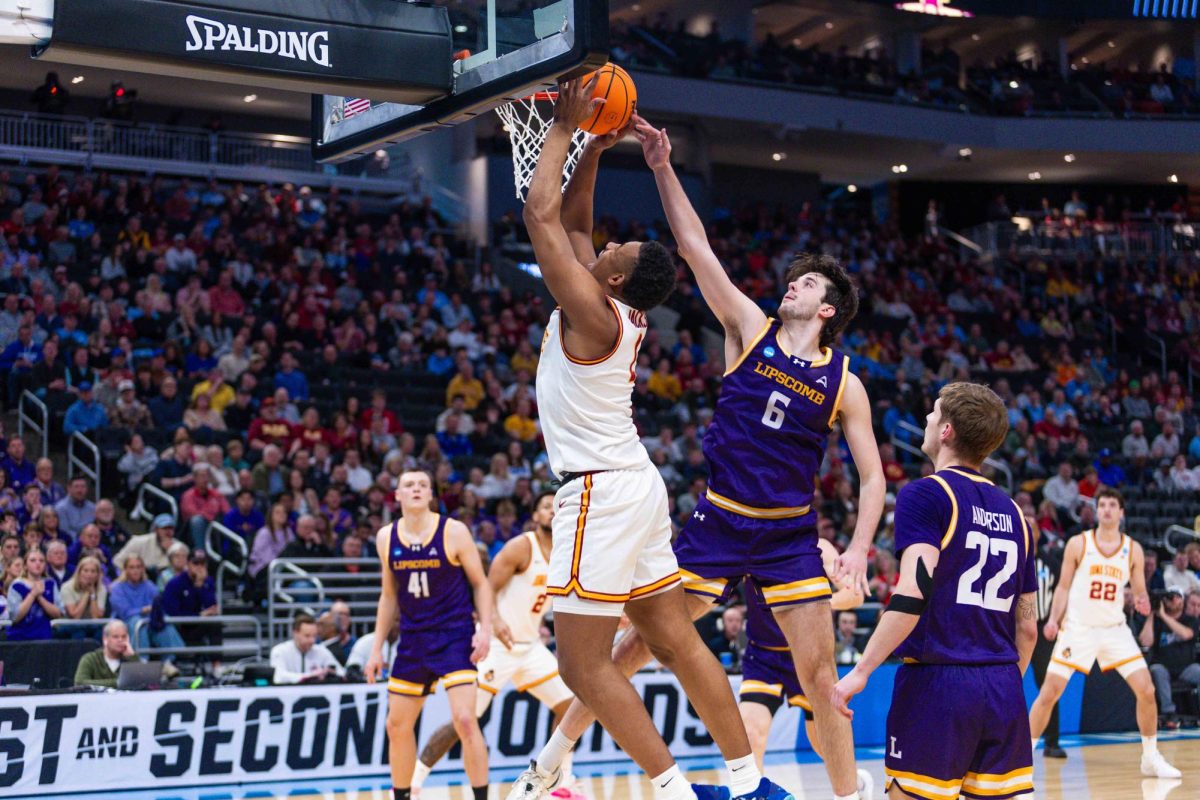Miller Faculty Fellowship program impacts and improves teaching instructions
October 31, 2017
On Oct. 24, the 2017-2018 Miller Faculty Fellows Luncheon was held at Memorial Union Campanile Room. Current and former Miller Faculty Grant recipients, Center for Excellence in Learning and Teaching (CELT) Advisory Board members, CELT staff, and administrators from across campus joined this event.
The Miller Faculty Fellowship was funded through the generosity of F. Wendell Miller. His bequest helps support faculty development proposals that advance the university’s strategic plan.
The program is administered by the President’s Office, the Senior Vice President and Provost’s Office and CELT. The Miller Fellowships provide faculty with opportunities to enhance their scholarly work in the undergraduate academic programs of the university and to develop innovative approaches to enhance student learning. Faculty have up to 12 months to meet the goals of their project.
“We are able to impact and improve [teaching] instructions. The grants not only focus on pedagogy, but also pedagogy that leads to publications, such as Scholarship of Teaching and Learning (SoTL). We have members in CELT and Team-Based Learning (TBL) [programs] that have really worked hard to make SoTL a priority,” said Volker Hegelheimer, CELT Advisory Board Chair.
The event started with welcome remarks by Sara Marcketti, Interim Director of CELT, and professor of apparel, events, and hospitality management program.
“Since 1996, the Miller Faculty Fellowship has awarded over 700 faculty members over $3 million dollars to enrich their scholarly work in the undergraduate programs of the university. Each of the proposals suggests innovative ways to approach teaching to enhance student learning,” Marcketti said.
“Through assessment and evaluation of past recipients, many of these innovations have led to faculty development and advancement. The Millers often provide proof of concept for NSF and other federal funding agencies. We also know that many faculty have cited the Miller as a key component in their career trajectory leading to full professor and Morrill and University Professor.”
Jonathan Wickert, Senior Vice President and Provost spoke on the importance and significance of the fellowship program at Iowa State.
“It supports our faculty to continuously improve and raise the quality of the courses that they teach. For students, this means students will be able to learn from faculty at the cutting edge. And the students will have richer, deeper and creative experience in the classroom,” Wickert said. “This is really the best of Iowa State University supporting our faculty and all its focus on creative learning experience.”
This year’s Miller Faculty grant recipient, Dr. Cameron MacKenzie, an assistant professor of industrial and manufacturing system program, designed an online testing modules for an engineering economics course.
This testing module will randomly select questions, and no question will be repeated exactly. MacKenzie started to apply seven different testing modules in his class this fall.
“This is a good way to test students and if it works, I will keep using this in my class. This is an example of how to do different types of evaluation. This grant gives me money to hire a graduate assistant to help me build the testing modules. My master’s student is writing a thesis on this, probably we’ll publish a paper on it,” MacKenzie said.
Last year’s Miller Faculty Fellow recipient Timothy Steward, an associate professor from Natural Resource Ecology and Management program, gave a poster presentation about his Miller Faculty Fellowship project. Steward conducted an interdisciplinary project with professors from School of Education and other programs.
“This grant provides us with financial support to purchase supplies and equipment,” Steward said.
Before this luncheon event, CELT organized a Miller Faculty Fellowship Panel on Oct. 17. At the panel, Marcketti introduced Miller Faculty Fellowship to the participants and provided guidelines on how to apply this fellowship.
Panel speakers, Sara Bickelhaupt, Research Analyst from Office of Institutional Research, Case Dorius, an assistant professor from Human Development and Family Studies program, Michael Dornack, an industrial engineer shared their Miller Faculty grants experience with the participants.
More information about Miller Faculty Fellowship program can be found on the CELT website. Proposals should be submitted by Dec. 5.


